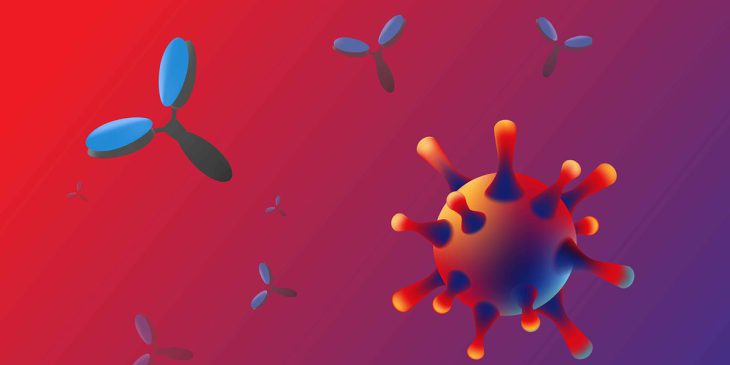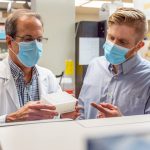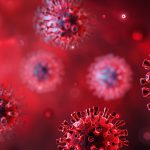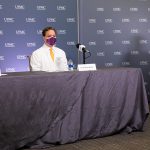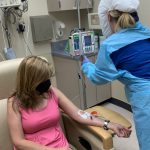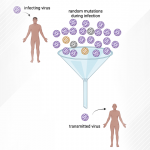In the midst of last year’s deadly surge of COVID-19 cases caused by the delta variant, UPMC not only increased its capacity as one of the largest administrators of monoclonal antibody treatments in the U.S. but also tested the effectiveness of these treatments in near real-time.
Today, the results of that effort were published in JAMA Network Open, setting a precedent for how health care organizations can provide new treatments while simultaneously analyzing real-world data on their performance and feeding those findings back into improved care for future patients.

Dr. David Huang
“That was a very intense summer,” said lead author David T. Huang, M.D., M.P.H., UPMC physician and professor of critical care medicine, emergency medicine and clinical and translational science at the University of Pittsburgh School of Medicine. “Fortunately, we had two different monoclonal antibody treatments that were safe and effective in pre-delta clinical trials and had been shown to neutralize delta in laboratory experiments. But we didn’t know how well they’d work in people or if one was better than the other. We had to learn while doing our best to treat patients.”
Monoclonal antibodies are lab-made versions of the antibodies that our bodies naturally make to fight infections. They are given directly to patients for an extra boost in clearing the virus that causes COVID-19, before it can cause damage.
From July 14 to Sept. 29, 2021, UPMC ran two parallel studies: One looking at whether patients who received any monoclonal antibody fared better than patients who did not; and another comparing the effectiveness of Regeneron’s combination monoclonal antibody treatment to GSK-Vir Biotechnology’s sotrovimab. Both treatments had been granted emergency use authorization from the U.S. Food and Drug Administration to treat higher-risk patients within seven to 10 days of COVID-19 symptom onset.
Because the monoclonal antibodies needed to be given intravenously, UPMC set up a network of infusion centers capable of safely and equitably giving the treatments to outpatients with COVID-19. Patients were randomized to receive one of the two treatments, though they or their physician could request a specific treatment.

Dr. Erin McCreary
A total of 3,558 patients participated in the studies. By comparing them with similar patients with COVID-19 who had not received monoclonal antibodies, the UPMC team determined that those who received monoclonal antibodies during the delta surge cut their risk of hospitalization and death by 60%. The team also verified that it did not matter which of the available monoclonal antibody treatments the patients received: There was no statistically significant difference in their performance.
Neither treatment works against the omicron variant, which displaced delta in late 2021, so they are no longer available. UPMC is currently giving a different monoclonal antibody that works against omicron, and patients can learn more at www.upmc.com/coronavirus/monoclonal-antibodies.
“At this point, it’s not about the drug as much as it is that we showed this was possible,” said coauthor Erin McCreary, Pharm.D., director of infectious diseases improvement and clinical research innovation at UPMC. “In real-time, during a pandemic surge when patients need to be rapidly treated after diagnosis, we set up a system that allowed us to provide the best available care while also learning and improving.”


